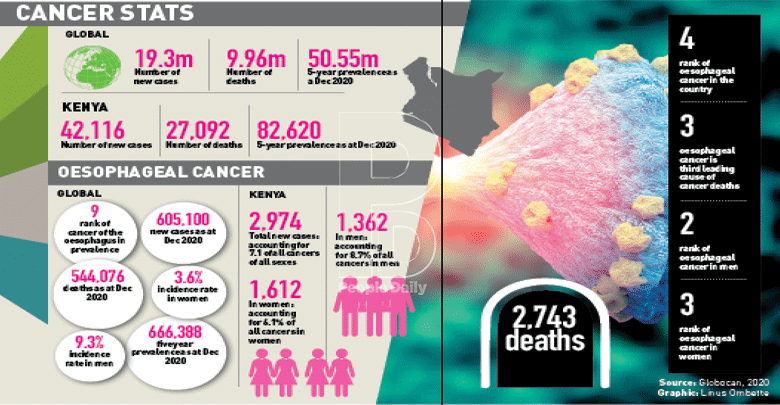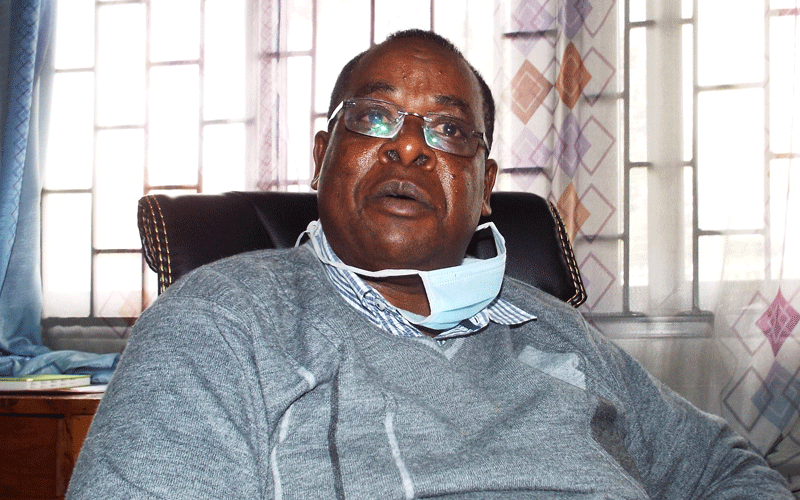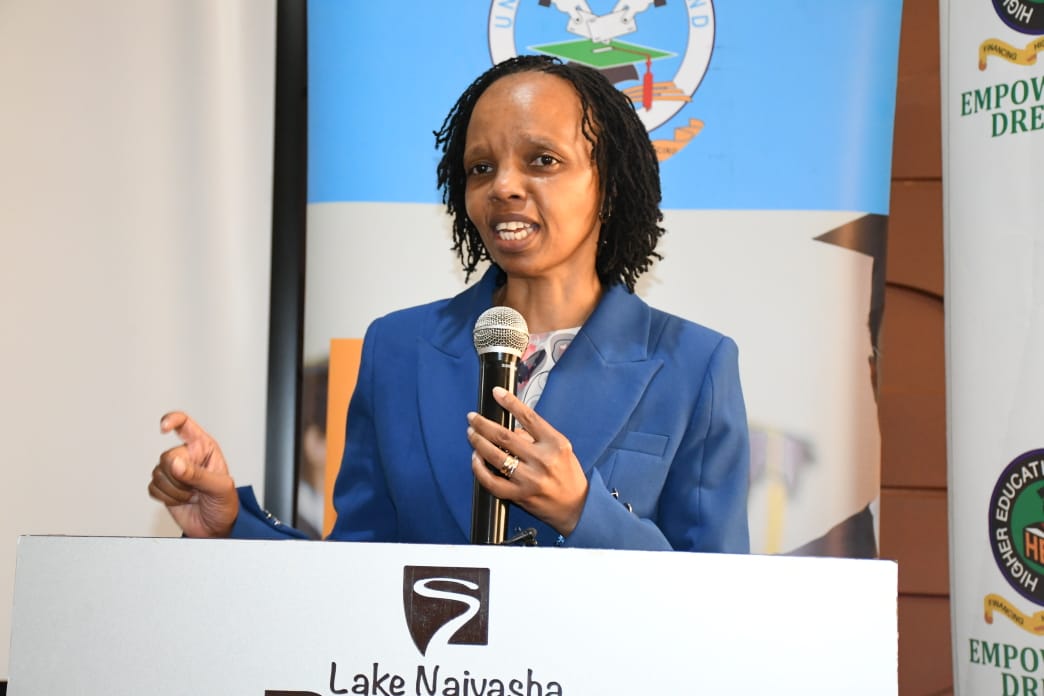Battling food pipe cancer reminded me why I wanted to live

Jane Wangura thought nothing of swallowing difficulties she had until she was diagnosed with the third deadliest cancer in the country after cervical and breast cancer. She tells her story.
“I felt an intense pain in my chest. It continued for a period. It reached a point I could not perform household chores,” Jane Wangura tells People Daily with a pained look as she walks to her chicken coop in Gitero village, Nyeri county.
“I have difficulties in swallowing and can’t perform strenuous duties. This is my condition now,” she adds.
Wangura, 50, recalls how in hindsight she had been naïve about feeling unwell. After months of finding it hard to swallow, the mother of four began eating only soft foods.
“All along I thought it was heartburn or just a simple sore throat that would go away, I battled on until one night in May 2018, my husband insisted I go for a checkup,” she recalls.
“I went to some hospitals within the county and was treated and told I had ulcers,” says Wangura. The pain persisted.
Delayed diagnosis
A trip to the emergency department at Mount Kenya Hospital in Nyeri followed, but it took several weeks for further tests to reveal she had oesophageal cancer.
The tumour had already developed and had elongated.
However, she could not receive treatment at the facility. She went to Consolata Hospital Mathari in the same county for further treatment and care.
But because of lack of money, she had to wait for a month before she was admitted at MP Shah Hospital, Nairobi for surgery.
Following chemotherapy sessions, surgeons removed part of her oesophagus.
Late diagnosis of new cancers and failure to promptly spot recurrences among survivors contribute to premature deaths in Kenya.
The Health ministry estimates that about 70 to 80 per cent of cancers are diagnosed in late stages when the disease has burrowed through major body organs, making it incurable.
Oesophageal cancer usually begins in the cells that line inside the food pipe or gullet.
Early signs include difficulty in swallowing, having a feeling that something is stuck in the throat and weight loss.
It is the sixth most common cause of cancer deaths worldwide and third in the country after cervical and breast cancer.
The killer cancer can occur anywhere along the oesophagus. More men than women get it, but in Kenya the reverse is the case.
Data from the Globocan, the global cancer registry run by the International agency for research in Cancer, indicates Kenya recorded 2,974 new cases of oesophagus cancer and 2,743 deaths in 2020.
There were 1,612 new cases among females and 1,362 among males.
Oesophagus cancer is common in Kenya and experts confirms findings from a research done years ago at Moi Teaching and Referral Hospital in Uasin Gishu and Tenwek Hospital in Bomet, showed it affected most patients from Keiyo, Uasin Gishu and Nandi. But now, it is creeping to other regions with little known incidences.
Dr Andrew Odhiambo, Consultant Medical Oncologist and a lecturer at the University of Nairobi confirms that oesphageal cancer is the fourth most common cancer among all gender and ages combined.
He explains that risk factors associated with food pipe cancer includes tobacco chewing or smoking and diet, especially intake of traditional fermented milk (mursik) which contains ash or volcanic soils.
He further notes that in East Africa, Kenya has some of the highest number of oesophageal cancer cases compared to its neighbours such as Tanzania, even though they share same climatic conditions.
A cause of concern, he narrates, is the pattern of the disease where young patients who have never been exposed to the documented traditional risk factors such as excessive consumption of alcohol, tobacco use among others, are getting it.
“To reduce increasing numbers of food pipe cancer, it is necessary to know its risks factors to limit exposure among the population.
Until we unlock the main reason most citizens get oesophageal cancer, it is still going to cause researchers sleepless nights,” he explains.
Support from her family, says Wangura, was enormous. “Those are times when family mean the most.
My husband helped fundraise and sent money for my treatment and care at MP Shah Hospital,” notes Wangura.
A check-up later revealed the cancer had not returned. She was released from hospital after three months.
Dr Odhiambo, confirms that, “There are a lot of scientists and researchers in the country that still don’t understand oesophageal cancer.
One may argue hot liquids such as tea of high temperatures, or ash used in mursik can cause injuries to the eosophagus.
But still the lower side of the food pipe tends to get a different type of cancer from the upper side and the risks factors still differ in regions.”
Stigma
After discharge from the hospital, Wangura would come face to face with stigma and discrimination from her community and some close relatives.
“My community and close neighbours did not understand my situation. Some people said I was going to die,” she explains.
Nevertheless, she continued with her recovery phase that came with a lot of counselling.
The disease has changed her life. Wangura notes, “I still can’t swallow some food well. I don’t take githeri anymore neither can I do a lot of activities.”
Although she is supposed to go for checkups at a nearby hospital, she can’t afford it.
Dr Odhiambo concurs that any cancer treatment and care is expensive because it involves different modalities of treatment.
“It can take two to three months for chemotherapy and surgery. A patient has to see a lot of specialists. An entire treatment and care can go to the tune of Sh1million in some cases,” he explains.
Achieving a universal coverage on such lifestyle diseases, calls for drastic measures to be taken including increased investments in preventive and curative care.
“It requires a well-funded tax-kitty. It will be very costly for Universal Health Coverage programme to take an active role in the management and care of cancer patients,” he notes.
Wagura is part of Slopes Cancer Awareness Network (SCAN) Mount Kenya, a community based organisation comprising 15 active members and serving the larger central Kenya. It was founded by Elizabeth Njeri Gathogo.
“At Nyeri Hospice, I met with other cancer survivors. We formed a small group. My vision was to see how I could reach other people so that they don’t suffer the stigma and discrimination that I had gone through,” narrates Elizabeth, a breast cancer survivor.
As a survivor of oesophageal cancer, and part of the advocacy group, Wangura continues to create awareness on the dangers of the little-known cancer of the food pipe.
“We should talk about all signs and symptoms of the different types of cancer. And our men shouldn’t shy off from going to see the doctor,” she notes.
But early detection can be problematic as the symptoms can resemble minor conditions.There has also been a steady rise in the number of oesophageal cancer cases in the country.
Nyeri is one of the high burden counties for non-communicable diseases, with close to half of deaths in the county aused by these diseases, and with over 700 new cancer cases annually.
Most women and even men are yet to do regular breast examinations or screening for other diseases, and therefore, many cases are presented to medical professionals at a late, and usually critical, stage.
Way forward
Dr Odhiambo explains that already there are efforts by a team of scientists at Tenwek Hospital in Bomet County to investigate the high rates and mechanisms of detecting the food-pipe cancer across the country.
“At least, progress is being made on the disease,” explains Dr Odhiambo.
Elizabeth believes the government can work together with NCD survivors and advocates to reach the underserved communities.
“We need to collaborate with the government in creating awareness on lifestyle diseases. We need to break down the meaning of diet or the lifestyle diseases in a language that our people can understand, that way you help people who love eating meat to do so in a healthy way,” she explains
For Wangura, battle with the little known cancer has given her more reason to live.
“I am happy to be alive. I want to also help other people,” she says,











